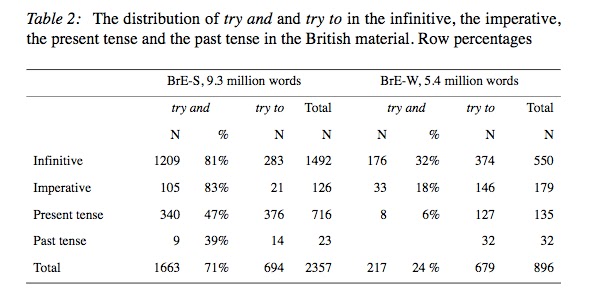I've done posts on cream and milk and sugar-refining by-products and other kinds of sugar have come up in passing. Now it's flour's turn, thanks to encouragement from my friend Sandra.
I'm just going to do it as a list:
I'm just going to do it as a list:
| BrE | AmE |
|---|---|
| plain flour | all-purpose flour |
| strong (bread) flour | bread flour |
| wholemeal | whole wheat |
| [no such thing] | cake flour |
| corn flour | cornstarch |
| corn/maize meal | corn flour, corn meal |
| self-raising flour* | self-rising flour* |
| [no such thing] | Wondra (instant flour) |
| 00 flour | fine flour |
*Postscript from 2020: @BNW informs me that self-raising and self-rising differ a bit: "It seems like the AE self-rising flour has less baking powder, added salt, and a slightly softer/lower-protein flour.". So substitute with caution.
There's also very strong bread flour, which seems to be extra strong in Canada. I can't find a US equivalent. It has even more gluten/protein than regular bread flour.
Because bleaching flour is illegal in UK (see the link across from cake flour above), unbleached flour is mostly an American collocation.
AmE uses pastry flour more than BrE does. Sometimes in BrE that would be 00 flour--but 00 flour can also be more yellowy pasta flour. (I think I may have heard patisserie flour on Great British Bake-Off, but I'm not finding much evidence of it elsewhere.)
If you follow the link at Wondra above, you'll see it's a special kind of flour that's mostly used for making gravies and sauces. One thing to say about British gravies: they are usually considerably less thickened than typical American gravies.
For more on flour and flour (the word), here's a nice international overview.
Finally, this isn't a bread post, but I must note a flour-related bread difference. Order breakfast in the UK, and you will (probably) be asked: white or brown? in reference to your toast. In the US, you'd be asked white or wheat? (Actually, in both countries you may be given more options. But I"m saving those for a bread post.)
If you ever want a reason to argue that British English is superior, do skip the reasons I've already debunked (maths, herb, etc.) and go with this one. Calling one bread-made-of-wheat wheat in contrast to another bread-made-of-wheat is a bit silly. And chances are: you'll say wheat, they'll hear white and breakfast will be ruined!
Postscript (30 Jan): I've added AmE corn flour (=BrE corn meal or maize meal) to the list. Americans use this to make corn bread and corn muffins (a kind of quick bread). Whenever I make these for my English family, I get to eat the whole batch because they do not appreciate its wonderfulness. The UK increasingly has polenta cakes of various types, offered as gluten-free options. Those are like the consistency of corn bread (a bit less crumbly) but more aggressively sweetened, in my experience, by being drenched in a fruit syrup.
---------
Some notes from the harmless drudge:
As the deadline for my book approaches AND I go back to teaching after a glorious year of writing said book (thanks NEH!!!), you can probably expect that I'll be doing a bit less posting than in 2016. I'll set aside a bit of time per week, but less time than it usually takes me to write a post. So, either they'll be very short posts or a few weeks apart. (Though as I viciously cut [more BrE] bits out of the book, maybe they'll end up as quick posts here.)
I will be on (orig. AmE) radios a bit this spring (UK and NZ plans at the moment). I'll announce these via Twitter and Facebook, as usual, and I'm also noting forthcoming "appearances" on the Events and Media page of the blog. (The radio announcements will go up when broadcast dates are firmer.)
 |
| Photo: Veganbaking.net - CC BY-SA 2.0, Link |
AmE uses pastry flour more than BrE does. Sometimes in BrE that would be 00 flour--but 00 flour can also be more yellowy pasta flour. (I think I may have heard patisserie flour on Great British Bake-Off, but I'm not finding much evidence of it elsewhere.)
If you follow the link at Wondra above, you'll see it's a special kind of flour that's mostly used for making gravies and sauces. One thing to say about British gravies: they are usually considerably less thickened than typical American gravies.
For more on flour and flour (the word), here's a nice international overview.
Finally, this isn't a bread post, but I must note a flour-related bread difference. Order breakfast in the UK, and you will (probably) be asked: white or brown? in reference to your toast. In the US, you'd be asked white or wheat? (Actually, in both countries you may be given more options. But I"m saving those for a bread post.)
If you ever want a reason to argue that British English is superior, do skip the reasons I've already debunked (maths, herb, etc.) and go with this one. Calling one bread-made-of-wheat wheat in contrast to another bread-made-of-wheat is a bit silly. And chances are: you'll say wheat, they'll hear white and breakfast will be ruined!
Postscript (30 Jan): I've added AmE corn flour (=BrE corn meal or maize meal) to the list. Americans use this to make corn bread and corn muffins (a kind of quick bread). Whenever I make these for my English family, I get to eat the whole batch because they do not appreciate its wonderfulness. The UK increasingly has polenta cakes of various types, offered as gluten-free options. Those are like the consistency of corn bread (a bit less crumbly) but more aggressively sweetened, in my experience, by being drenched in a fruit syrup.
---------
Some notes from the harmless drudge:
As the deadline for my book approaches AND I go back to teaching after a glorious year of writing said book (thanks NEH!!!), you can probably expect that I'll be doing a bit less posting than in 2016. I'll set aside a bit of time per week, but less time than it usually takes me to write a post. So, either they'll be very short posts or a few weeks apart. (Though as I viciously cut [more BrE] bits out of the book, maybe they'll end up as quick posts here.)
I will be on (orig. AmE) radios a bit this spring (UK and NZ plans at the moment). I'll announce these via Twitter and Facebook, as usual, and I'm also noting forthcoming "appearances" on the Events and Media page of the blog. (The radio announcements will go up when broadcast dates are firmer.)





























